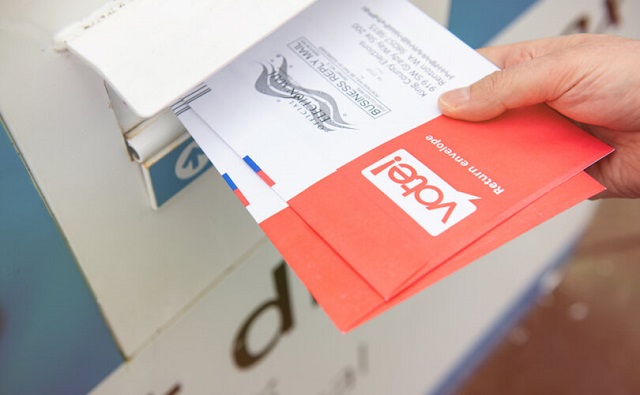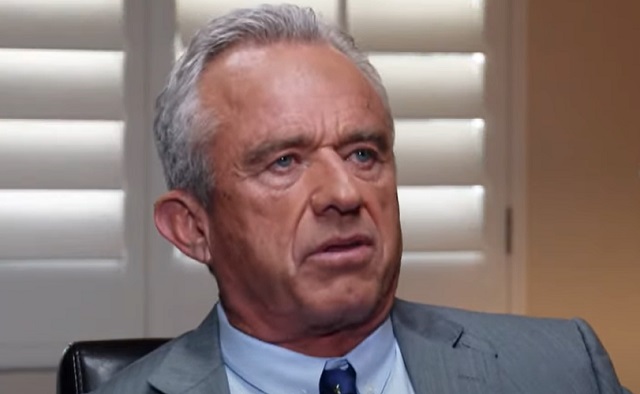National
Free expression trial of Amy Hamm nears its end

News release from the Justice Centre for Constitutional Freedoms
The Justice Centre for Constitutional Freedoms is providing lawyers for British Columbia nurse Amy Hamm, whose disciplinary hearings will conclude on March 18-19, 2024. Oral arguments, beginning at 10:00 a.m. PT, will conclude the hearing before the three-person Disciplinary Committee of the British Columbia College of Nurses and Midwives in Vancouver. Lawyers will also answer any questions the panel may have following the submissions. The public is invited to view the proceedings online.
The prosecution of Amy Hamm over the off-duty expression of her opinions dates back to September 2020, when she co-sponsored a billboard featuring the words, “I ♥ JK Rowling” – a reference to the famous British author who, in 2019, came to the defense of a British woman whose employment contract was terminated after expressing “gender critical views.”
Two complaints by members of the public to the College about Ms. Hamm’s involvement with the billboard led to an investigation. That resulted in a 332-page report on Ms. Hamm’s activities, including a collection of her tweets, podcast transcripts and articles she had authored on the topic of gender identity and its conflict with women’s rights and the safeguarding of children.
The charge against Ms. Hamm reads, “Between approximately July 2018 and March 2021, you made discriminatory and derogatory statements regarding transgender people, while identifying yourself as a nurse or nurse educator. These statements were made across various online platforms, including but not limited to, podcasts, videos, published writings and social media.” The hearing began on September 21, 2022, and the panel heard 20 days of testimony, including approximately five days of challenges to the expert evidence provided by Ms. Hamm.
Much of the hearings to date has concentrated on the qualification, testimony and questioning of expert witnesses for both sides. The College presented as experts Dr. Elizabeth Saewyc and Dr. Greta Bauer, who argued that statements made by J. K. Rowling were “transphobic” and, by extension, so were Ms. Hamm’s. In Ms. Hamm’s defense, her legal team presented experts Dr. James Cantor, Dr. Kathleen Stock and Dr. Linda Blade.
As stated in their February 19, 2024, written submissions to the Committee, Ms. Hamm’s lawyers argue that:
- There is no evidence of breach of standards or bylaws, nor a case for a finding of unprofessional conduct;
- Her statements do not have a sufficient nexus to her status as a nurse to warrant regulatory interference;
- Her speech is reasonable and scientifically supportable;
- There is social value to her speech;
- Her advocacy is conducted in good faith, including to affect political change;
- She believes in the truth of her statements;
- There is no evidence of “discrimination” or “harm;”
- The infringement of her Charter right to freedom of expression, belief and opinion cannot be justified on a proportionate balancing against the objectives of the College.”
Lisa Bildy, lawyer for Amy Hamm, stated, “A key issue in this case is whether professionals can express criticism of gender identity ideology or other political issues in the public square without being subject to regulatory discipline. We argue that the College has allowed itself and its disciplinary process to become participants in a public and political controversy on which it should not be taking a side. The College should enforce high standards of performance for nurses and midwives when caring for their patients, and otherwise refrain from taking sides on political, cultural and moral issues that are debated in the public square. The College has lost its way.”
Business
Honda deal latest episode of corporate welfare in Ontario

From the Fraser Institute
By Jake Fuss and Tegan Hill
If Honda, Volkswagen and Stellantis are unwilling to build their EV battery plants in Ontario without corporate welfare, that sends a strong signal that those projects make little economic sense.
On Thursday, the Trudeau and Ford governments announced they will dole out an estimated $5 billion in corporate welfare to Honda so the auto giant can build an electric vehicle (EV) battery plant and manufacture EVs in Ontario. This is the third such deal in Ontario, following similar corporate welfare handouts to Volkswagen ($13.2 billion) and Stellantis ($15.0 billion). Like the previous two deals, the Honda deal comes at a significant cost to taxpayers and will almost certainly fail to create widespread economic benefits for Ontarians.
The Trudeau and Ford governments finalized the Honda deal after more than a year of negotiations, with both governments promising direct incentives and tax credits. Of course, this isn’t free money. Taxpayers in Ontario and the rest of Canada will pay for this corporate welfare through their taxes.
Unfortunately, corporate welfare is nothing new. Governments in Canada have a long history of picking their favoured firms or industries and using a wide range of subsidies and other incentives to benefit those firms or industries selected for preferential treatment.
According to a recent study, the federal government spent $84.6 billion (adjusted for inflation) on business subsidies from 2007 to 2019 (the last pre-COVID year). Over the same period, provincial and local governments spent another $302.9 billion on business subsidies for their favoured firms and industries. (Notably, the study excludes other forms of government support such as loan guarantees, direct investments and regulatory privileges, so the total cost of corporate welfare during this period is actually much higher.)
Of course, when announcing the Honda deal, the Trudeau and Ford governments attempted to sell this latest example of corporate welfare as a way to create jobs. In reality, however, there’s little to no empirical evidence that corporate welfare creates jobs (on net) or produces widespread economic benefits.
Instead, these governments are simply picking winners and losers, shifting jobs and investment away from other firms and industries and circumventing the preferences of consumers and investors. If Honda, Volkswagen and Stellantis are unwilling to build their EV battery plants in Ontario without corporate welfare, that sends a strong signal that those projects make little economic sense.
Unfortunately, the Trudeau and Ford governments believe they know better than investors and entrepreneurs, so they’re using taxpayer money to allocate scarce resources—including labour—to their favoured projects and industries. Again, corporate welfare actually hinders economic growth, which Ontario and Canada desperately need, and often fails to produce jobs that would not otherwise have been created, while also requiring financial support from taxpayers.
It’s only a matter of time before other automakers ask for similar handouts from Ontario and the federal government. Indeed, after Volkswagen secured billions in federal subsidies, Stellantis stopped construction of an EV battery plant in Windsor until it received similar subsidies from the Trudeau government. Call it copycat corporate welfare.
Government handouts to corporations do not pave the path to economic success in Canada. To help foster widespread prosperity, governments should help create an environment where all businesses can succeed, rather than picking winners and losers on the backs of taxpayers.
Authors:
Addictions
Why can’t we just say no?

From the Frontier Centre for Public Policy
Drug use and violence have become common place in hospitals. Drug-addicted patients openly smoke meth and fentanyl, and inject heroin. Dealers traffic illicit drugs. Nurses are harassed, forced to work amidst the toxic fumes from drugs and can’t confiscate weapons. In short, according to one nurse, “We’ve absolutely lost control.”
“Defining deviancy down” is a cultural philosophy that emerged in the United States during the 1990s.
It refers to society’s tendency to adjust its standards of deviancy “down,” so that behaviours which were once unacceptable become acceptable. Over time, this newly- acceptable behaviour can even become society’s norm.
Of course, the converse must also be true — society looks down on those who label social behaviours “wrong,” deeming them moralistic, judgemental or simply out of touch with the realities of modern life.
Thirty years later, this philosophy is entrenched in British Columbia politics and policies. The province has become a society that cannot say “no” to harmful or wrong behaviours related to drug use. It doesn’t matter if you view drug use as a medical issue, a law-and-order issue, or both – we have lost the ability to simply say “no” to harmful or wrong behaviour.
That much has become abundantly clear over the past two weeks as evidence mounts that BC’s experiment with decriminalization and safe supply of hard drugs is only making things worse.
A recently-leaked memo from BC’s Northern Health Authority shows the deleterious impact these measures have had on BC’s hospitals.
The memo instructs staff at the region’s hospitals to tolerate and not intervene with illegal drug use by patients. Apparently, staff should not be taking away any drugs or personal items like a knife or other weapons under four inches long. Staff cannot restrict visitors even if they are openly bringing illicit drugs into the hospital and conducting their drug transactions in the hallways.
The public was quite rightly outraged at the news and BC’s Health Minister Adrian Dix quickly attempted to contain the mess by saying that the memo was outdated and poorly worded.
But his facile excuses were quickly exposed by publication of the very clearly worded memo and by nurses from across the province who came forward to tell their stories of what is really happening in our hospitals.
The President of the BC Nurses Union, Adriane Gear, said the issue was “widespread” and “of significant magnitude.” She commented that the problems in hospitals spiked once the province decriminalized drugs. In a telling quote, she said, “Before there would be behaviours that just wouldn’t be tolerated, whereas now, because of decriminalization, it is being tolerated.”
Other nurses said the problem wasn’t limited to the Northern Health Authority. They came forward (both anonymously and openly) to say that drug use and violence have become common place in hospitals. Drug-addicted patients openly smoke meth and fentanyl, and inject heroin. Dealers traffic illicit drugs. Nurses are harassed, forced to work amidst the toxic fumes from drugs and can’t confiscate weapons. In short, according to one nurse, “We’ve absolutely lost control.”
People think that drug policies have no impact on those outside of drug circles – but what about those who have to share a room with a drug-smoking patient?
No wonder healthcare workers are demoralized and leaving in droves. Maybe it isn’t just related to the chaos of Covid.
The shibboleth of decriminalization faced further damage when Fiona Wilson, the deputy chief of Vancouver’s Police Department, testified before a federal Parliamentary committee to say that the policy has been a failure. There have been more negative impacts than positive, and no decreases in overdose deaths or the overdose rate. (If such data emerged from any other healthcare experiment, it would immediately be shut down).
Wison also confirmed that safe supply drugs are being re-directed to illegal markets and now account for 50% of safe supply drugs that are seized. Her words echoed those of BC’s nurses when she told the committee that the police, “have absolutely no authority to address the problem of drug use.”
Once Premier David Eby and Health Minister Adrian Dix stopped denying that drug use was occurring in hospitals, they continued their laissez-faire approach to illegal drugs with a plan to create “safe consumption sites” at hospitals. When that lacked public appeal, Mr. Dix said the province would establish a task force to study the issue.
What exactly needs to be studied?
The NDP government appears to be uninformed, at best, and dishonest, at worst. It has backed itself into a corner and is now taking frantic and even ludicrous steps to legitimize its experimental policy of decriminalization. The realities that show it is not working and is creating harm towards others and toward institutions that should be a haven for healing.
How quickly we have become a society that lacks the moral will – and the moral credibility – to just to say “no.”
Susan Martinuk is a Senior Fellow with the Frontier Centre for Public Policy and author of Patients at Risk: Exposing Canada’s Health-care Crisis.
-

 espionage14 hours ago
espionage14 hours agoOne in five mail-in voters admitted to committing voter fraud during 2020 election: Rasmussen poll
-

 Business13 hours ago
Business13 hours agoHonda deal latest episode of corporate welfare in Ontario
-

 COVID-191 day ago
COVID-191 day agoTrudeau gov’t has paid out over $500k to employees denied COVID vaccine mandate exemptions
-

 International1 day ago
International1 day agoRFK Jr tells EWTN: Politicization of the CIA, FBI, Secret Service under Biden is ‘very troubling’
-

 Opinion2 days ago
Opinion2 days agoThe Climate-Alarmist Movement Has A Big PR Problem On Its Hands
-

 Automotive6 hours ago
Automotive6 hours agoThe EV ‘Bloodbath’ Arrives Early
-

 Brownstone Institute2 days ago
Brownstone Institute2 days agoThe Teams Are Set for World War III
-

 Alberta2 days ago
Alberta2 days agoFormer senior financial advisor charged with embezzling millions from Red Deer area residents









